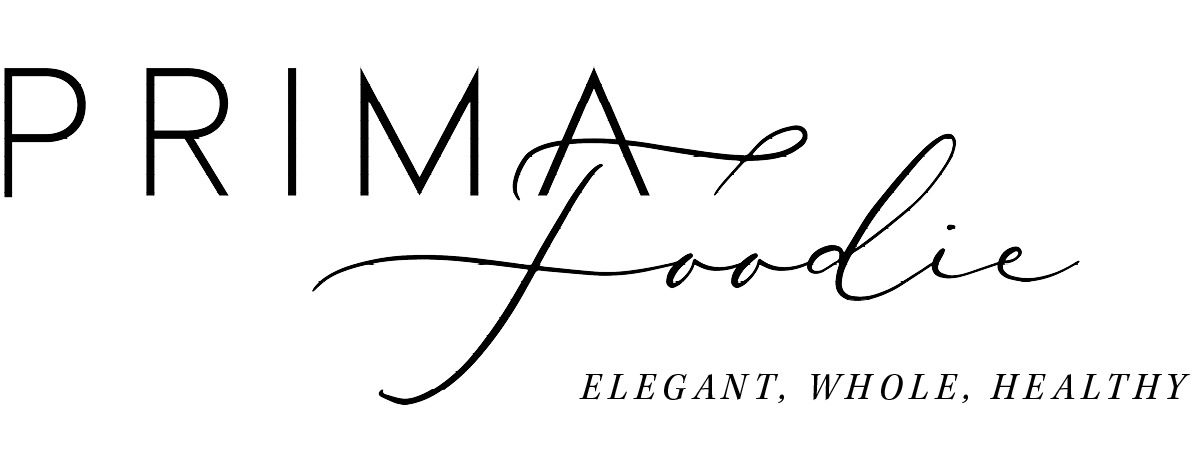Honoring the Modest Moments
Reaching our goals is no easy feat. To create any change requires consistency, gumption, and ultimately belief in ourselves. But so often, we focus too much on the end game rather than the success along the way. It is there, in the process, where the greatness exists. That's why at PrimaFoodie we want to celebrate those small wins. They may seem more limited in size, but they add up to remarkable things. We want to be so many things.
By Stacey Lindsay
We want to be successful. Accomplished. Present. Innovative. And—perhaps most of all—we want to be finishers. That is, we want to "crush" the lofty high goals that we set for ourselves. We want to reach the end game so we can move on to the next thing.
The word "crush" has taken a front-row seat in our modern lexicon (along with "kill"). To "crush it" today means to exceed the goals we've made for ourselves in an exclamatory way. While accomplishing something is positive, there’s an underlying stressful connotation to this saying: Everything we do or want to do seems to be laced with an all-or-nothing mentality: We crush it or we don't. We kill it or we fail.
This rigid expectational mindset is everywhere. There's a shared impulse to overachieve, which stems from an unremitting way of life that has blossomed in America. We leave no wiggle room, be it in how we parent, how we move forward in our careers, or how we take care of ourselves. It's all or nothing. Couple this with the fact that every facet of our lives now seems to be an opportunity to multi-task or commodify. If we aren't spending every minute working to get smarter, healthier, fitter, richer, or better then what are we doing?
One thing we're doing is hurting ourselves. When we give more credence to the things we don’t accomplish, we actually feed into a greater cycle of failing. Research over the past decade has shown that when we don't work to control our self-criticism it can negatively impact our progress in meeting our goals. (Separate research links self-criticism to depression.)
What this all-or-nothing approach also does is keep us from missing out on the deep enjoyment that comes from the things in-between the idea and the goal. Instead of looking at the end game, if we take pause and look at the smaller wins—be it one less cup of coffee or taking the stairs instead of the elevator—we're more likely to continue moving forward on that path. Jenny O'Dell perfectly captures this in her book, How to Do Nothing. She writes that "patterns of attention—what we choose to notice and what we do not—are how we render reality for ourselves, and thus have a direct bearing on what we feel is possible at any given time." There is a "revolutionary potential" to taking back our attention, O'Dell continues. We can find pleasure, satisfaction, and encouragement from the wins that we've so long been overlooking.
Because it is in these nuances that the joy lives. These smaller wins, the moments that build to the next, count for way more than we give them credit. I believe we need to give them more credence. We need to learn to be more compassionate and generous with ourselves—which research touts as a way to promote self-growth and accomplishment. Instead of giving in to self-loathing over not completing a new at-home workout routine, why not focus on the fact that you signed up for it in the first place? That’s a win. Or rather than dwelling on the fact that you ate the entire chocolate bar, why not pay attention to the dried herbs you swapped out for fresh cilantro in your dinner? These things may seem meager but, in fact, they're huge. Small shifts add up to great things. It's simply up to us to see that.
We are living in uncertain times. Each of our situations is different but our collective front against a health epidemic is the same. We need to—more than ever—be good to ourselves and lean into the modest moments. After all, it is these small wins that lead to great things.
It is these small wins that make us human.
Stacey Lindsay is part of the PrimaFoodie team. A longtime journalist, she was formerly the articles editor at goop. Throughout her career she has covered the topics of women’s issues, philanthropy, veterans' rights, climate change, civic engagement, and financial health for various print, digital, and TV outlets.
